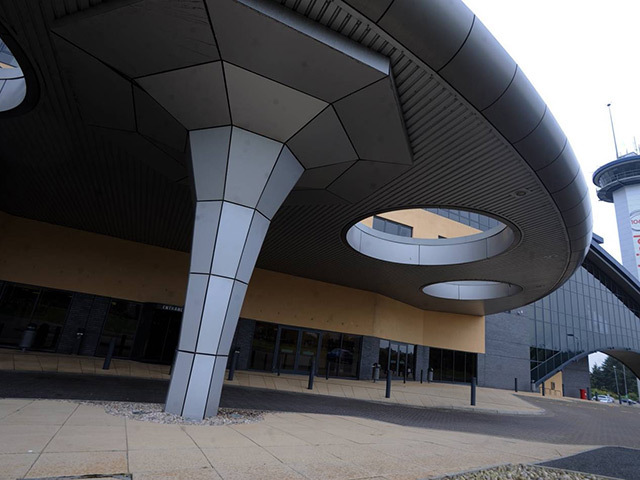
Oil and gas companies are lining up to buy the Aberdeen Exhibition and Conference Centre land.
Aberdeen City Council is working with Henry Boot Developments Ltd on plans for a replacement exhibition and conference centre at Dyce.
The new £185million facility is earmarked for a site owned by Aberdeen University, near the Rowett Institute.
Former leader Barney Crockett said at the time that the existing Bridge of Don venue was “no longer fit for purpose” and a new, larger complex would help secure money-spinning events such as Offshore Europe.
It is understood that there are three oil firms looking at the current site.
GE Oil and Gas – which currently sponsors the venue and has its Aberdeen HQ next door – was rumoured to be amongst the firms interested.
But last night a spokesman said they were not involved in any potential bid.
The AECC complex would be worth an estimated £14.3million.
The council still owns the land, although Henry Boot is handling the sale process.
Under the terms of the partnership deal, proceeds from the sale of the site would go towards development costs for the new centre.
City council finance convener Willie Young said: “This is a tremendous site, it has great potential both for commercial and for residential use. Obviously, being such a good site, the market will ultimately determine its value, but we as a council have to ensure we get best value for the taxpayer.
“That does not necessarily mean the highest offer, it may be that we get an offer for housing, or for commercial use, and we will have to weigh it up and come to a decision on what’s best for the city.”
The existing AECC at Bridge of Don is zoned for commercial or business use, but it is understood at least one housing developer has expressed an interest in the site.
The local authority is entering into a 35-year lease agreement with Henry Boot for the Dyce complex, and has agreed to underwrite costs of up to £7.5million a year.
In reality, however, the council expects to pay closer to £1.5million annually after income from naming rights as well as private investment is factored in.
Gordon McIntosh, director of enterprise, planning and infrastructure, said the council was eventually hoping to reach an annual “break-even” point.
However, opposition politicians have warned that council taxpayers could be left facing an “enormous bill” to cover losses for an operation which has already swallowed millions of pounds of public subsidies.
Exhibition centres across the UK and beyond traditionally require public subsidies, but are major drivers for the wider economy.
In the financial year 2012-13, about £1.3million of council cash went into the AECC, which ended up £800,000 in the red.
But Offshore Europe (OE) 2013 alone boosted the north-east economy by an estimated £53.9million, according to figures released in March.
Recommended for you
